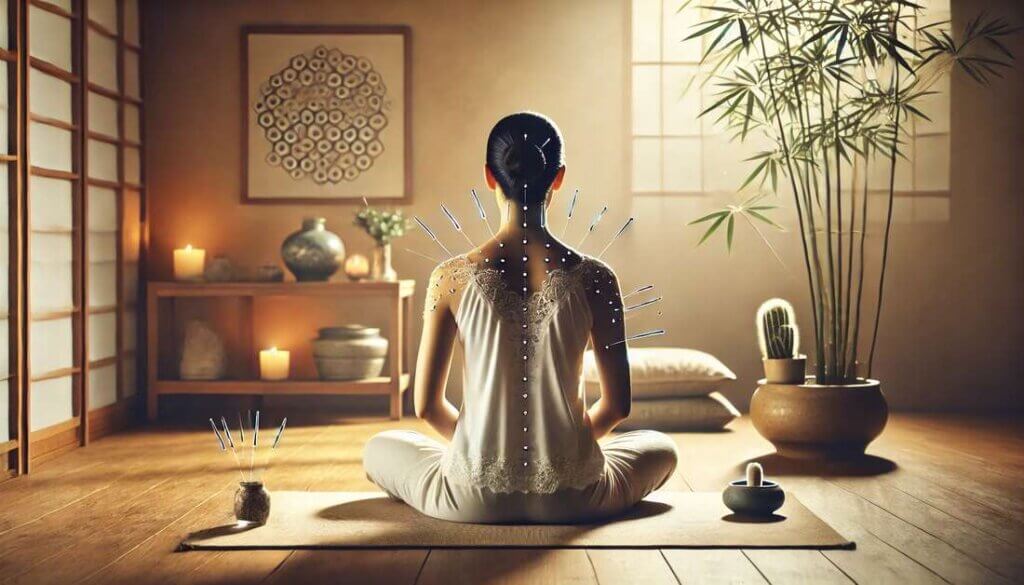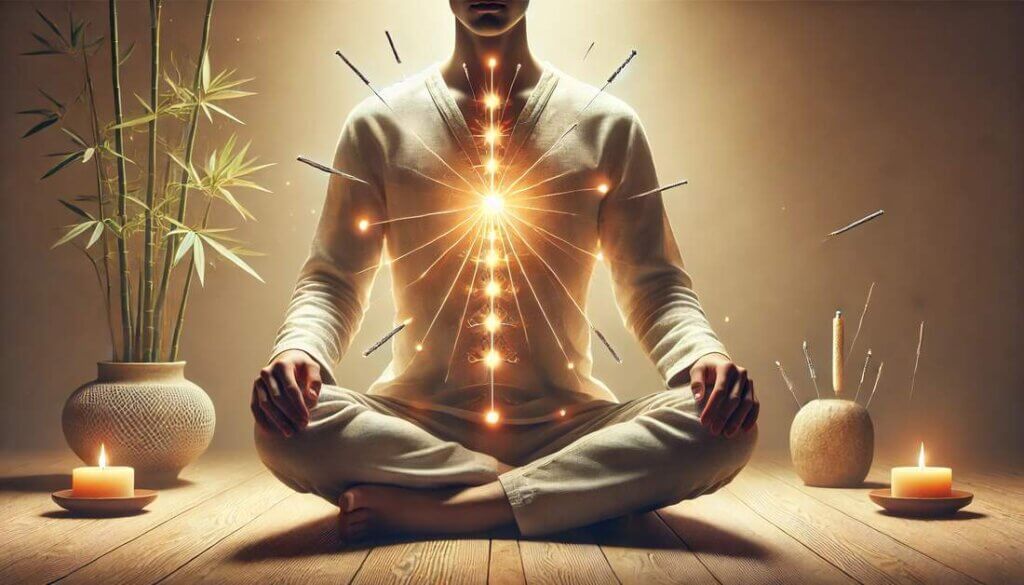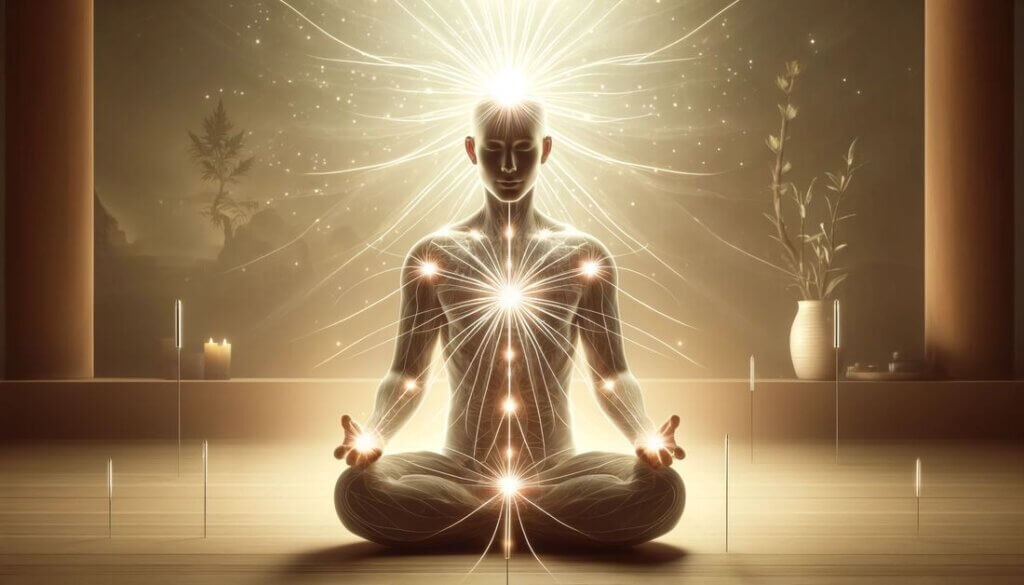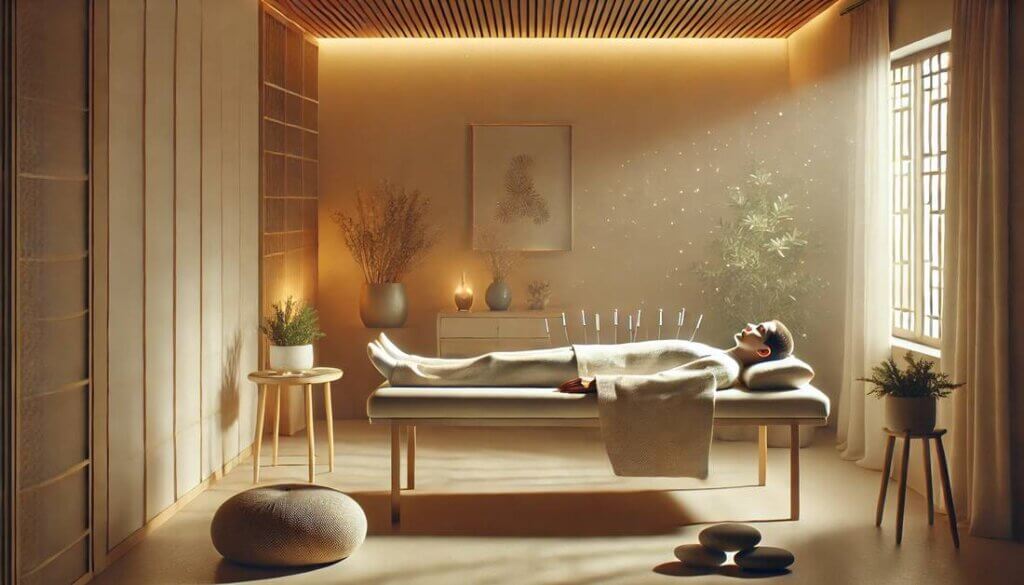Meditation and acupuncture are powerful practices for reducing stress and improving focus. Although ancient, they can be combined in new ways to benefit both mind and body. If you’re interested in enhancing your meditation experience, acupuncture may be the missing piece.
In this guide, we’ll explain how acupuncture supports meditation and share five practical tips. You’ll learn how acupuncture can deepen relaxation, sharpen focus, and create a stronger sense of well-being. These tips are designed to be simple but effective for beginners and experienced meditators alike.
Why Combining Meditation with Acupuncture Works
When used together, meditation and acupuncture can create a strong foundation for relaxation and mental clarity. Here’s why they’re a great match:
1. Enhanced Relaxation: Acupuncture promotes relaxation in the body by targeting specific points that ease tension. When you’re relaxed physically, it becomes easier to settle into meditation and clear your mind.
Scientific studies have shown that acupuncture can activate the body’s parasympathetic nervous system, or “rest and digest” mode, which helps you relax (NCBI Study).
2. Improved Focus and Clarity: Regular meditation improves focus, and acupuncture can boost this effect by clearing mental fatigue. It helps reduce stress and balance energy, making it easier to focus during meditation.
[How to master meditation with acupuncture]
3. Balanced Energy Flow: Acupuncture aligns the flow of energy, or “Qi,” in the body, which is a core part of traditional Chinese medicine. This balance can deepen your meditation experience, as you’ll feel more centered and grounded.
Combining these practices creates a smooth transition into a state of calm and focus. Let’s look at five steps to make the most of meditation with acupuncture.
5 Powerful Tips to Master Meditation with Acupuncture
Tip 1: Start with Pre-Meditation Acupuncture Sessions

Preparing your body with acupuncture before meditation can set the tone for a relaxed session. Many people find acupuncture deeply calming, which helps when you’re trying to focus your mind. Scheduling acupuncture on the same day as your meditation can maximize relaxation.
A common approach is to book a weekly or bi-weekly acupuncture session to keep stress levels in check.
For example, if you meditate in the evenings, a pre-meditation acupuncture session can help you release the day’s tension. Talk to your acupuncturist about your meditation goals, so they can adjust your treatment to fit these needs.
Tip 2: Focus on Specific Acupuncture Points During Meditation

During meditation, certain acupuncture points can serve as focus anchors, helping you stay present and calm. Here are three helpful points:
[How to master meditation with acupuncture]
1. Third Eye (Yintang): Located between the eyebrows, this point is believed to support mental clarity and intuition. You can gently press it before starting meditation to enhance focus.
2. Heart 7 (Shen Men): Found on the wrist, this point is known to calm the mind and reduce anxiety. Lightly massaging it can help you feel more relaxed.
3. Stomach 36 (Zusanli): Positioned on the lower leg, this point is thought to boost energy and promote grounding.
By focusing on these points, either through gentle pressure or visualization, you can deepen your meditation experience. Adding this focus helps keep the mind steady and engaged in the moment.
Tip 3: Integrate Deep Breathing Techniques

Deep breathing works well with acupuncture, helping you reach a relaxed, focused state. Try practicing slow, deep breaths before and during meditation. For instance, a popular method is diaphragmatic breathing, where you breathe deeply into your belly, hold for a second, then exhale slowly.
Inhale through your nose, filling your lungs fully, then slowly release the breath. This helps activate the parasympathetic nervous system, creating a state of calm. Combining this with acupuncture can keep both your mind and body relaxed, ready for meditation.
[How to master meditation with acupuncture]
Tip 4: Use Visualization to Enhance Energy Flow

Visualization can further enhance meditation, especially with acupuncture. Imagine energy flowing smoothly through your body, connecting each point where acupuncture needles are usually placed. Visualizing this energy movement can help you feel more centered and connected.
For example, picture a warm light moving along your body’s energy pathways. This mental image helps align your focus and promotes a deeper sense of calm. Visualization works as a mental cue, guiding you toward a balanced state that complements acupuncture’s effects.
Tip 5: Conclude with Post-Meditation Acupuncture for Lasting Benefits

Ending with acupuncture after meditation can extend the benefits throughout the day. Post-meditation acupuncture serves as a transition, allowing the mind and body to retain a sense of calm. In these sessions, the acupuncturist may focus on specific points to help you maintain clarity and relaxation.
This could include points on the scalp or temples to release remaining tension. For many, this post-meditation treatment supports a smoother, stress-free transition back into daily activities. Consult your acupuncturist to tailor these sessions to your meditation style.
Overcoming Common Challenges
Combining acupuncture and meditation can be rewarding but also requires patience. Here are some tips for common challenges:
[How to master meditation with acupuncture]
1. Consistency and Patience: Building a routine is essential. Start small and gradually increase your sessions. Short, daily practices can yield big results over time.
2. Managing Discomfort with Acupuncture: If you’re new to acupuncture, let your acupuncturist know if you feel discomfort. They can adjust the needle placement or use gentler points.
3. Building a Routine: Creating a regular schedule can help solidify both practices in your life. Whether it’s meditating daily and scheduling acupuncture weekly, consistency is key.
Long-Term Benefits of Combining Meditation and Acupuncture
By integrating meditation and acupuncture, you’ll find lasting benefits in many areas. Over time, this practice can lead to improved emotional balance, reduced anxiety, better sleep, and a sharper mind.
Studies show that regular meditation improves emotional resilience and concentration (Harvard Study). Paired with acupuncture, the effects can be even more profound.
These benefits contribute to a peaceful, balanced lifestyle that helps you handle stress better. You’ll feel more at ease, grounded, and in control of your responses to daily challenges.
My Personal Opinion [ How to master meditation with acupuncture]
Dear friends, whether acupressure helps you in meditation or expressions bring benefits, my personal advice is to be self-reliant in meditation. If you always depend on other tools, meditating without them may become difficult. This is because your body and mind can become dependent on these aids.
My guru, who guided me in meditation, also taught that self-reliance is essential. You should not rely on any equipment, audio, or music. The more you meditate by yourself, the deeper you will go and truly experience meditation’s benefits.
Meditation means diving into your inner self, and for this, understanding yourself is essential. This is why I suggest meditating independently. Doing so will allow you to gain greater benefits, and you can meditate anywhere, anytime, without special tools or a specific place.
If you rely on acupressure, you may need specific tools or a particular place, which might not always be available. I hope you enjoyed this blog post and gained clarity on the relationship between meditation and acupressure. For more such information, please read my other blog posts. Thank you!
To read my other blogs: Click here
[How to master meditation with acupuncture]